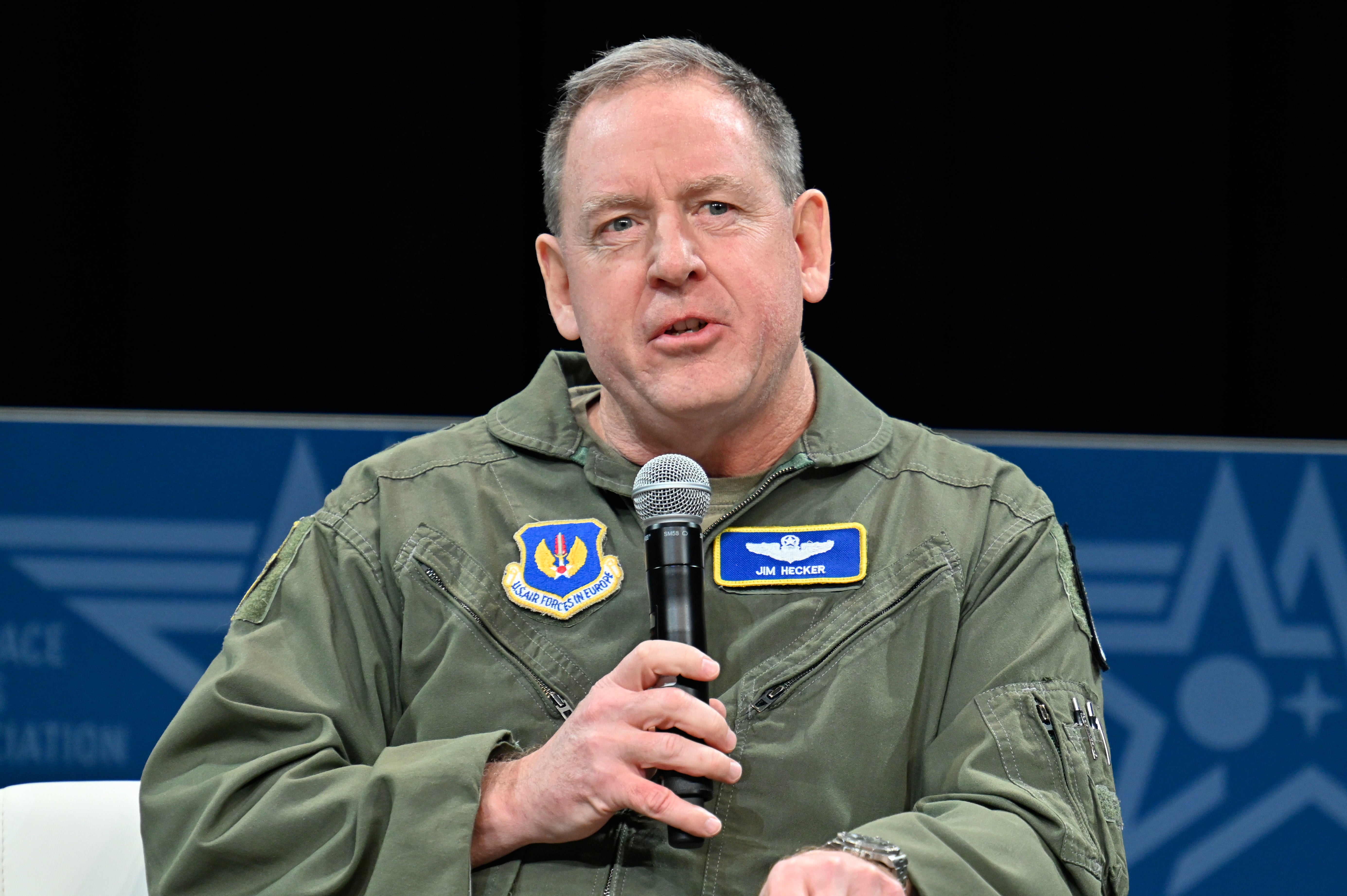Pentagon says surveillance flights, not counterterrorism ops, have restarted in Niger
The Pentagon says it has not restarted counterterrorism operations in Niger, a day after the head of U.S. airpower for Europe and Africa said those flights had resumed

The Pentagon said Thursday that it has not restarted counterterrorism operations in Niger, a day after the head of U.S. airpower for Europe and Africa said those flights had resumed.
Gen. James Hecker, responding to a question from The Associated Press at a security conference Wednesday, said the U.S. military has been able to resume some manned aircraft and drone counterterrorism operations in Niger.
But the Pentagon issued a statement Thursday saying those missions are only for protecting U.S. forces and not the more sensitive, and broader, counterterrorism operations U.S. forces have successfully run with the Nigerien military in the past, adding “stories to the contrary are false.”
“We are just flying ISR (intelligence, surveillance and reconnaissance) in order to monitor for any threats,” Pentagon spokeswoman Sabrina Singh said at a press briefing Thursday. “We are flying ISR for force protection purposes and that's it.”
Niger’s president was ousted in late July by a military junta. In the weeks since, the approximately 1,100 U.S. forces deployed there have been confined inside their military bases. News that some flights had resumed was seen as a good sign that State Department diplomatic efforts with the junta were improving security on the ground. For weeks the political uncertainty following the coup and the unstable security situation that followed has led to the U.S. consolidating some of its forces at a base farther from Niamey, Niger’s capital.
In a clarifying statement Thursday, the spokesman for air forces in Africa, Col. Robert Firman, said that in his Wednesday remarks, Hecker was just referring to the air component perspective and was not addressing the overall counterterrorism program in Niger.
In a preview provided by Hecker's staff of an Atlantic Council taped program set to air Friday, he further elaborated on the efforts on the ground in Niger.
“The last thing we want to have happen is, we don’t want a shooting war over there. And the good news is we’ve been vastly successful at doing so with the help of the State Department,” Hecker said. “The airspace is starting to slowly come back up. And we’re able to do some of our surveillance operations primarily for force protection in the area. So that’s helping us up quite a bit to make sure that we’re comfortable.
"And all the intelligence shows right now that the risk to to our forces is fairly low. But we need to make sure that if something happens, we’re ready to go. And we’re in a good position now that they’re starting to allow us to use some of our surveillance for force protection.”
The U.S. has made Niger its main regional outpost for wide-ranging patrols by armed drones, training of host nation forces and other counterterrorism efforts against Islamic extremist movements that over the years have seized territory, massacred civilians and battled foreign armies. The bases are a critical part of America’s overall counterterrorism efforts in West Africa.
Bookmark popover
Removed from bookmarks